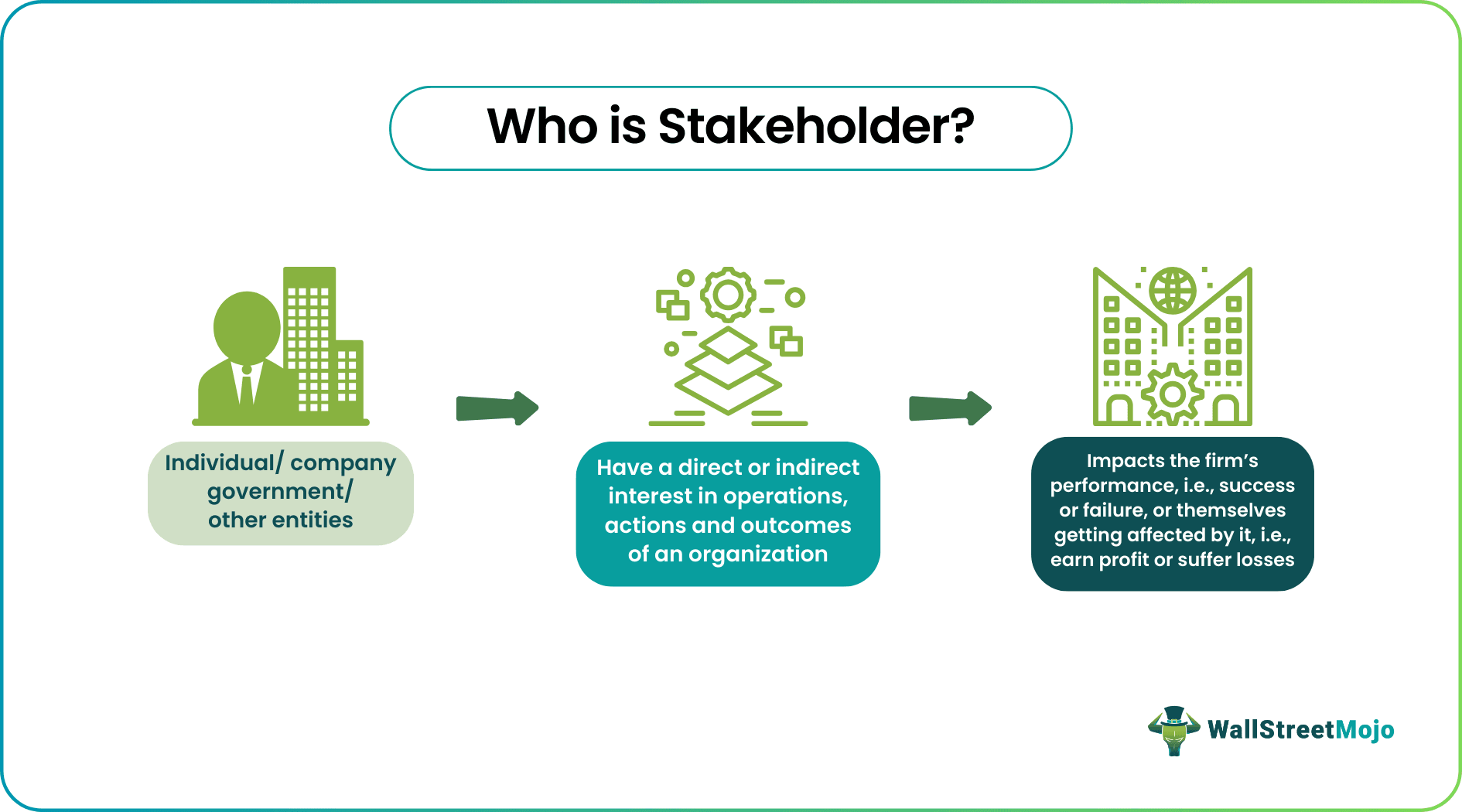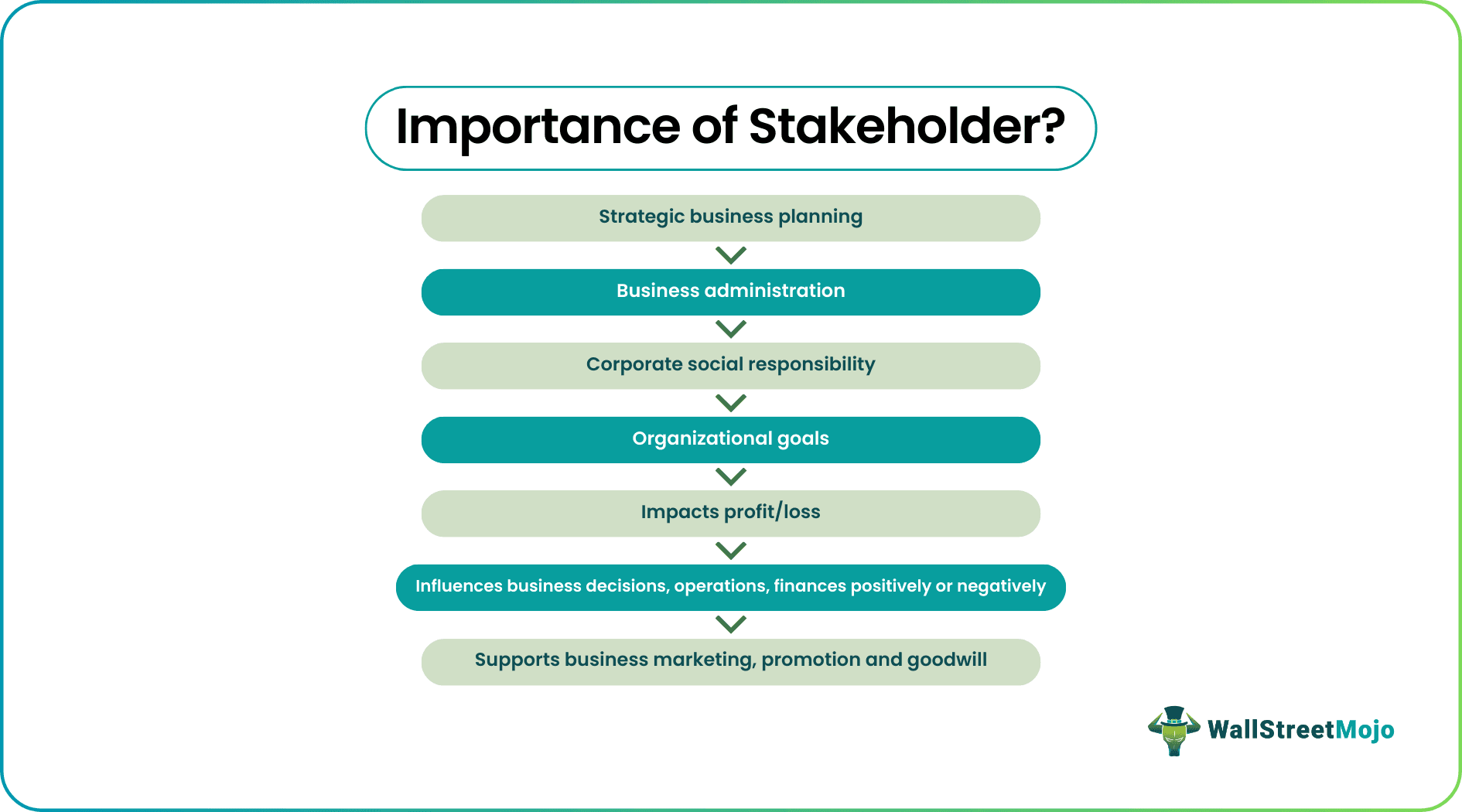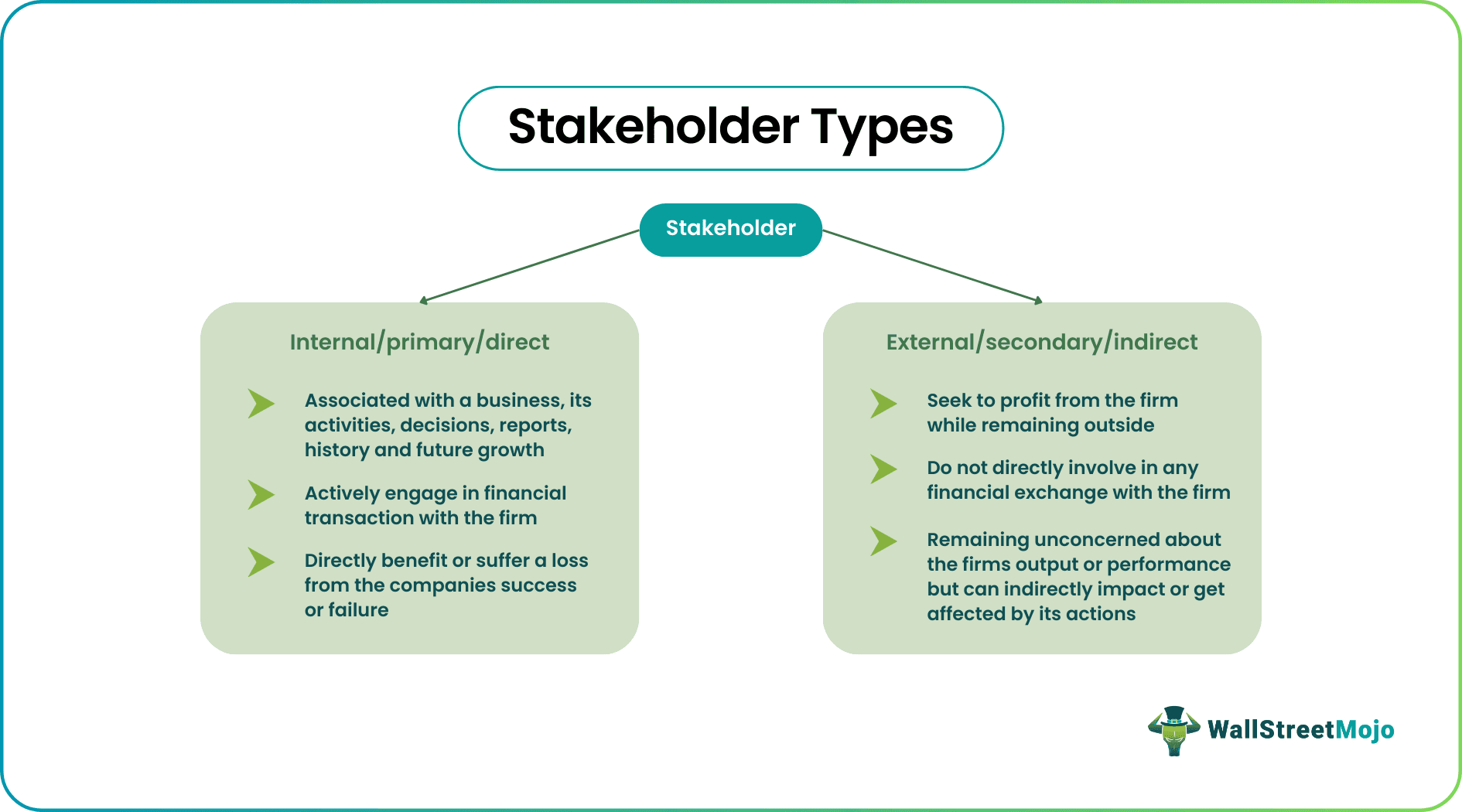Table Of Contents
Stakeholder Meaning
A stakeholder in business refers to anyone, including a person, group, organization, government, or any other entity with a direct or indirect interest in its operations, actions, and outcomes. They can be external or internal based on their relationship with the company that serves their interests.

Typically, they impact the firm's performance, i.e., success or failure, or themselves get affected by it. As a result, they become vital to the growth of every company. Stakeholder examples include employees, managers, investors, customers, trade associations, governments, etc.
Key Takeaways
- Stakeholder meaning describes someone who has a direct or indirect interest in the company's operations, activities, or consequences, such as a person, group, organization, government, or other institution.
- They can be internal (primary) or external (secondary), depending on their association with the company that serves their interests.
- Primary or direct stakeholders may include board members, employees, and investors. Whereas secondary or indirect ones may involve customers, creditors, governments, labor unions, etc.
- They are different from shareholders as the latter has a financial interest in the firm, can own and sell company stock, and vote on crucial business decisions.
How Does Stakeholder Work?
A stakeholder plays a crucial role in various business processes, such as strategic planning, administration, corporate social responsibility, and organizational goals. While ignoring them can result in loss, managing them can lead to profits.
Furthermore, they take great interest in or possess special rights influencing business decisions affecting operations and finances, whether positively or negatively. Likewise, a company's performance might have an impact on a stakeholder's financial or professional status. That is why many businesses practice stakeholder management to align their interests with that of concerned parties to make profits.
Much like individuals and entities, when a corporation is half-governed or controlled by the government, the state is said to be a stakeholder in the business. It means the enforcement of any law or policy will impact the respective industry.
R. Edward Freeman, an American philosopher, was the first to propose the stakeholder theory in 1984. The identity of these individuals or entities remains inextricably linked to the company in which they have invested interest, which works both ways.

If a stakeholder is a proponent of a business, it will support its marketing, promotion, and goodwill. At the same time, when the firm expands, they grow as well. Similarly, an employee or customer can benefit in the form of a paycheck or product. So in a way, their relationship with the organization is directly proportional, and vice versa as events like consumer activism can affect a business.
Stakeholder Types
Stakeholders may vary based on their involvement in the company. They are not the same as shareholders because the latter is a subset of the former. Furthermore, shareholders have a financial stake in the company. They can own and sell company shares, vote on critical business decisions, elect board members, and may have a short-term relationship with it. However, they can be internal (primary or direct) or external (secondary or indirect):

#1 - Internal Stakeholders
These are primarily associated with a business, such as owners, managers, board of directors, employees, and investors. They also actively engage in financial transactions with the firm. As a result, they directly benefit or suffer a loss from the company's success or failure. That is why they pay attention to the business activities, decisions, reports, history, and future growth.
#2 - External Stakeholders
These seek to profit from the firm while remaining outside, yet they are unconcerned about its output or performance. Examples include customers, creditors, governments, labor unions, communities, support groups, media, etc. However, they do not directly associate or involve in any financial exchange with the firm or play a part in its administration or working. Still, they can indirectly impact or get affected by its actions.
Stakeholder Examples
Let us consider the following stakeholder examples to understand the concept better:

Example #1
Melinda works at a mobile phone manufacturing company. Her friends, family, relatives, and neighbors are all aware that she works there. Melinda uses the same mobile phone that her company makes. When Melinda attends a party, a gathering, or a meeting, she advertises her firm by encouraging others to check for the features of her cellphone.
Melinda is an employee and, in a sense, a company promoter in this case. The corporation has a legal obligation to serve the interests of the people associated with it. As more individuals develop an interest in devices her company produces, it increases sales revenue. And as an employee, she grows along with it.
Example #2
Unlike public benefit corporations, which focus on striking a balance between stockholder and stakeholder interests, JPMorgan Chase & Co.'s board of directors recently chose to advance the interests of its shareholders and investors. The board stated that doing so will aid in the creation of a business-friendly economy that benefits everyone.
The decision came following JPMorgan's chief executive officer (CEO) Jamie Dimon's initiative that the companies should consider the needs of their employees, customers, communities, and shareholders equally.
Example #3
Peter is an investor in a car manufacturing company, has purchased a large number of shares. So if the company does not perform well and its stock price falls, he, as a stakeholder, will have to shoulder the losses.
